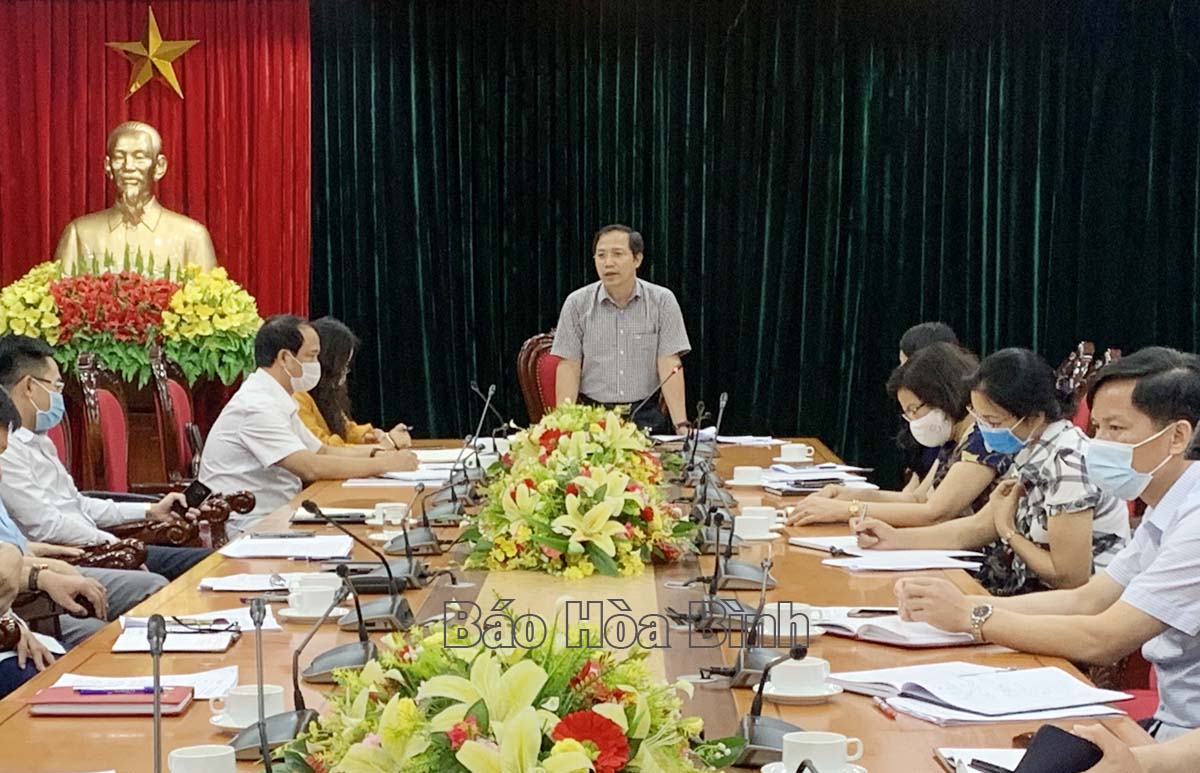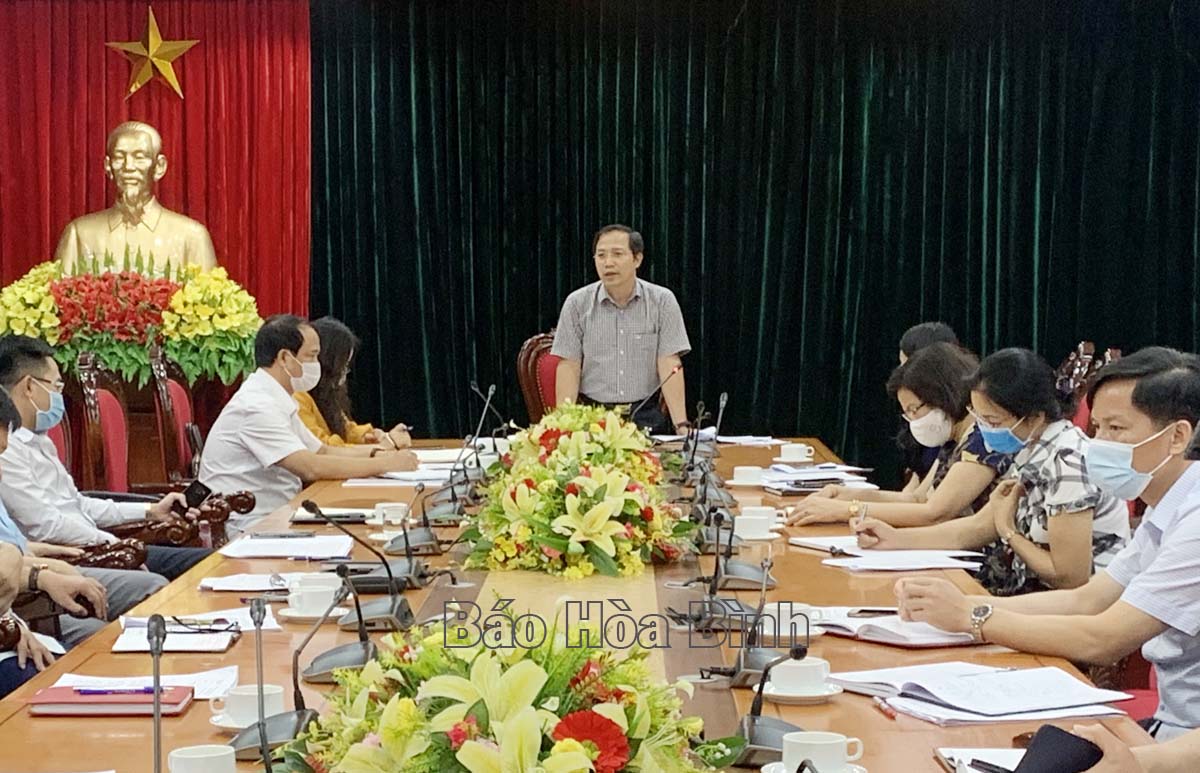
(HBO) – The People’s Committee of Hoa Binh province on June 10 held a meeting to gather ideas on the contents of a tourism development plan in the 2021-2025 period with a vision to 2030. Nguyen Van Toan, Vice Chairman of the People's Committee and head of the provincial Steering Committee for Tourism Development chaired the meeting.
Photo: Nguyen Van Toan, Vice Chairman of the provincial
People’s Committee addresses the meeting.
The draft plan for Hoa Binh's tourism development in the 2021-2025 period with
a vision to 2030 underlined the significance of designing a future plan and the
real development situation of the local tourism in the 2016-2020 period, along
with orientations and solutions to boost the sector's development in the next
five years with a vision to 2030.
Specifically, in the 2021-2025 period, the province aims to attract 6.3
trillion VND (273.7 million USD) of investment in developing infrastructure
serving tourism and high quality tourism products.
By 2025, the province hopes to welcome 4.9 million visitors with earnings from
tourism reaching about 5.4 trillion VND, creating jobs for about 26,000
labourers. Hoa Binh will strive to make Hoa Binh Lake tourism site meet basic
requirements of a national tourism area in 2025.
In the 2025-2030 period, the province aims to lure 11.9
trillion VND in investment, developing a large number of typical, attractive
and high quality tourism products.
In the period, the province expects to attract 7.3 million visitors and earned
11 trillion VND in tourism revenue. The sector is hoped to create jobs for
about 47,000 labourers. The province will turn the Hoa Binh Lake into a
national tourist site and make tourism a spearhead sector, according to the plan.
Concluding the meeting, Nguyen Van Toan, Vice Chairman of the provincial
People’s Committee, lauded the ideas of participants. He assigned the
provincial Department of Culture, Sports and Tourism and the standing office of
the Steering Committee for Tourism Development to summarise participants’
opinions and finalise the plan promptly.
It is necessary to point out outstanding achievements and major shortcomings
and weaknesses of the sector, defining reasons behind the situation and giving
specific and feasible solutions, he stressed.
Meanwhile, it is crucial to pay greater attention to tourism
planning, focusing on investing in expanding tourism infrastructure in the
master plan for the development of the Hoa Binh Lake national tourist area, he
said.
Toan also stressed the need to clarify the strength of the local tourism sector
with focus on cultural, spiritual and ecology tourism, while concentrating on
building tourism products, expanding markets and designing tours linking
tourist sites inside and outside the province./.
A diverse chain of eco-tourism and resort destinations concentrated in Hoa Binh city and the districts of Tan Lac, Da Bac, and Luong Son… Along with the launch of several key high-quality resort tourism projects, these developments have reshaped the landscape and enhanced the appeal of Hoa Binh as a travel destination.
Boasting diverse terrain, a mild climate, and rich natural resources, Cao Phong district is increasingly asserting its place on Vietnam’s tourism map, attracting both domestic and foreign visitors. The district is renowned for its stunning landscapes, majestic mountains, a crystal-clear hydropower lake, and the unique cultural identity of local ethnic groups.
With its pristine landscapes, unique cultural heritage of Muong ethnic minority, and an expanding range of visitor experiences, Tan Lac district of Hoa Binh has fast become a captivating destination for both domestic and international tourists.
Until now, Sung village in Cao Son commune, Da Bac district remains the only Dao ethnic community in Hoa Binh province to develop a community-based tourism model. Beyond its untouched natural landscapes, cultural identity serves as the cornerstone attraction for visitors.
Alongside the diverse cultural identities of the Kinh, Muong, Tay, Thai, Dao, and Mong ethnic people, Hoa Binh province is also renowned as the "capital" of the northwestern Vietnamese cuisine, offering unique and distinctive dishes. At festivals, during Lunar New Year (Tet), or on significant family or community occasions, special dishes are prepared, leaving a lasting impression on visitors.
A Phong Linh (Yellow Tabebuia) flower garden in Thang village, Thach Yen commune, Cao Phong district is currently in full bloom, drawing a large number of visitors.



